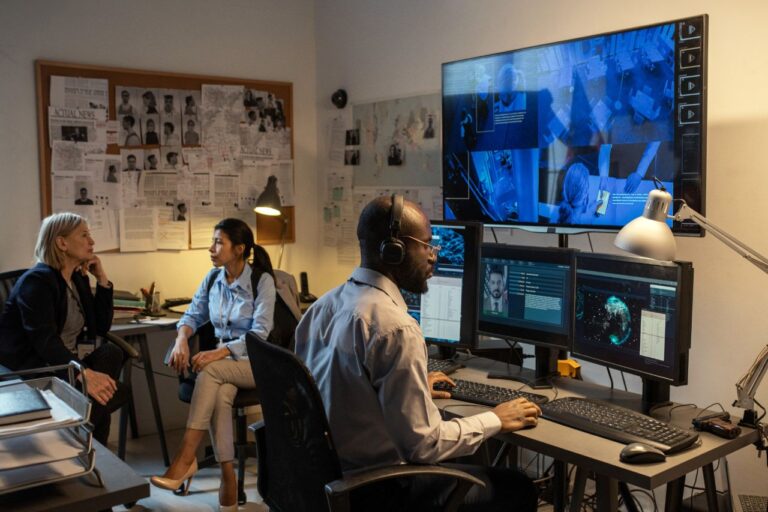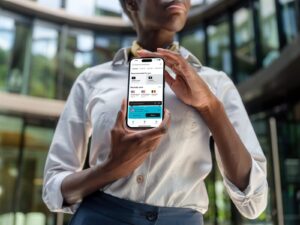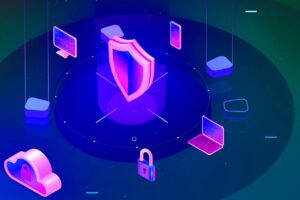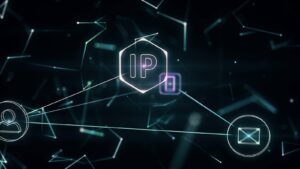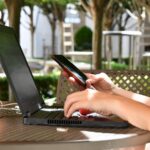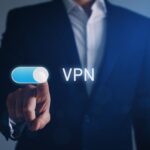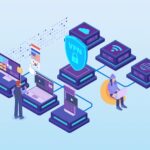Some privacy-minded people, myself included, believe that privacy is an inherent right. With that in mind, I believe it is important to know and understand how the governments of this world track and monitor their citizens. More specifically, can government agencies track you when you use a virtual private network (VPN)?
What is a VPN and how does it work
A VPN can be used to protect your privacy online and keep your data safe from hackers, companies that track and profile users, government surveillance programs, and more. When you use a VPN, all of your traffic is encrypted and routed through a private server located somewhere else in the world. This makes it virtually impossible for anyone to track your online activities or intercept your data.
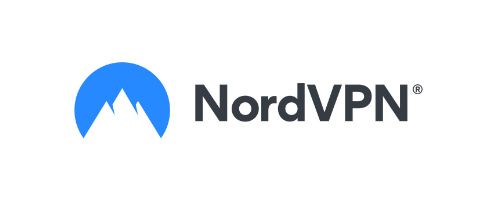
NordVPN Special Deal
Get VPN protection from NordVPN, one of the most reliable VPN companies in the world, for just $3.99/month!
✅ Possibly, the best Double VPN implementation.
✅ Over 5000 servers in 60 countries.
✅ VPN split tunneling support.
Does the government have access to VPNs?
Most countries in the world have laws that allow the government to access data on VPNs. However, the ability of a government to access your data will depend on several factors:
- The laws in the country you are located in,
- the level of encryption used by the VPN provider,
- whether the server is located within that country’s jurisdiction
- and most importantly, whether the VPN company has a no-logs policy and applies it.
Even if a government has the legal right to search and access a VPN server located on their territories, if the VPN company does not keep logs of user activity, there will be nothing to find and access. In other words, a no-logs policy is the only way to ensure true privacy when using a VPN.
How the government can track you when you use a VPN
While a Virtual Private Network (VPN) can provide you with increased privacy and security while online, it’s important to understand that the government can still track you when you use one.
This is because the government has various ways of monitoring and tracking internet activity, including the use of packet sniffers.
Packet sniffers are devices that can intercept and read data as it’s being transmitted across a network. This means that they can be used to decrypt VPN traffic and detect VPN usage.
In addition, the government can also request data from internet service providers (ISPs) and other companies to track individuals.
However, it’s not all bad news. By using a reliable VPN service, with features like military-grade encryption and a strict no-logs policy, you can further enhance your privacy and security online and make it harder for the government or any other entity to snoop on your activity.
These features help to make it much more difficult for the government to track you when you use a VPN. So if you value your privacy and want to keep your data safe from hackers or government surveillance, make sure to use a secure and reliable VPN service. It’s one of the best ways to protect yourself online.
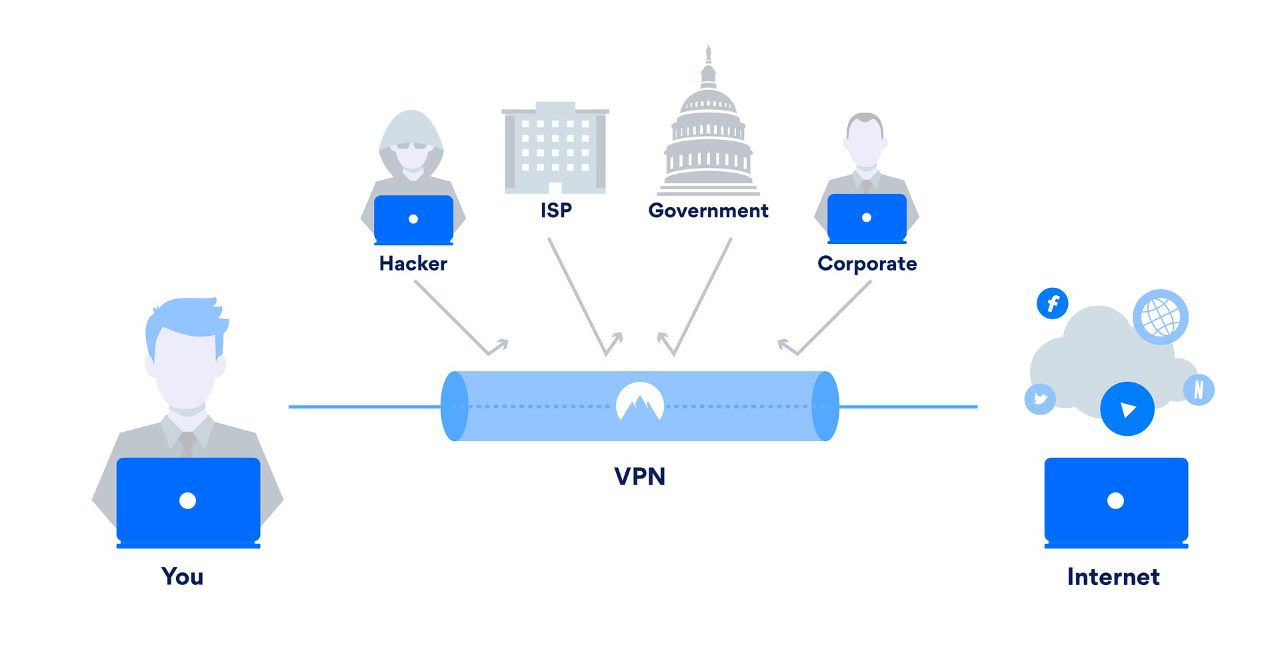
The benefits of using a VPN
A VPN, or Virtual Private Network, is a tool that can provide numerous benefits for internet users.
It can also help to protect privacy by encrypting data and routing it through a secure tunnel. This makes it harder for hackers to get their hands on your data.
Moreover, it can also help to prevent ISP monitoring and other forms of online surveillance.
Additionally, VPNs can be used to bypass censorship and access blocked websites.
Finally, they can also help to improve online security by evading fingerprinting and ad blocking.
Device fingerprinting is a technique used by websites and online services to track and identify users. This is done by collecting data about the devices you use to access the internet, such as your IP address, browser type, operating system, and more. This information is then used to create a “fingerprint” for each device, which can be used to track and identify users.
Overall, VPNs provide a valuable service for anyone who wants to maintain their privacy and security online.

The Best VPN Deal You Can Find Anywhere!
Get a VPN that lets you use an unlimited number of devices, offers amazing security features and has an unbeatable offer!
82% off + 2 Months Free
- Unlimited Devices
- Ad & malware blocker
- Cookie pop-up blocker
- Two-Factor Authentication
- 24/7 support
- $2.49/Month!
How to choose the right VPN for your needs
There are plenty of different VPNs on the market, and they all have different features and offerings. That’s why it’s important to find the best VPN for your particular needs.
If you’re concerned about online privacy, look for a VPN that offers strong encryption and doesn’t keep logs of user activity.
If you’re worried about speed, choose a VPN with a large network of servers in different countries.
And if you want to be able to access streaming services like Netflix while abroad, make sure to choose a VPN that can bypass geo-restrictions.
Recommended VPNs


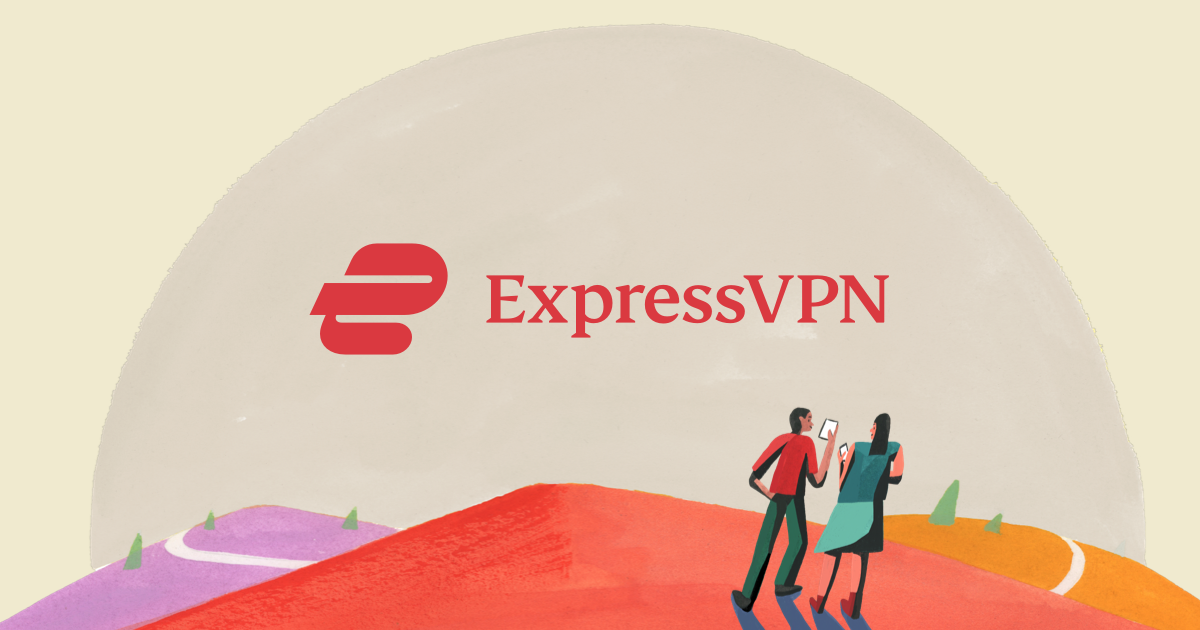
The risks of using a VPN
While a VPN can offer many benefits, there are also some potential risks to consider.
One of the most well-known risks is that your data may not be as secure as you think. When you connect to a VPN, your data is encrypted and routed through a server. However, if the server is hacked or compromised, your data could be at risk.
In addition, your online activity may be monitored by your VPN provider. While this may not be an issue for some people, it is worth considering if you value your privacy.
Finally, using a VPN can slow down your internet connection. This is because your data must travel an additional step to reach the VPN server. For most people, this slowdown is minor and barely noticeable.
However, it could be more problematic if you rely on a fast internet connection for work or school.
Overall, using a VPN comes with both benefits and risks. It is important to weigh these factors before deciding whether to use one.
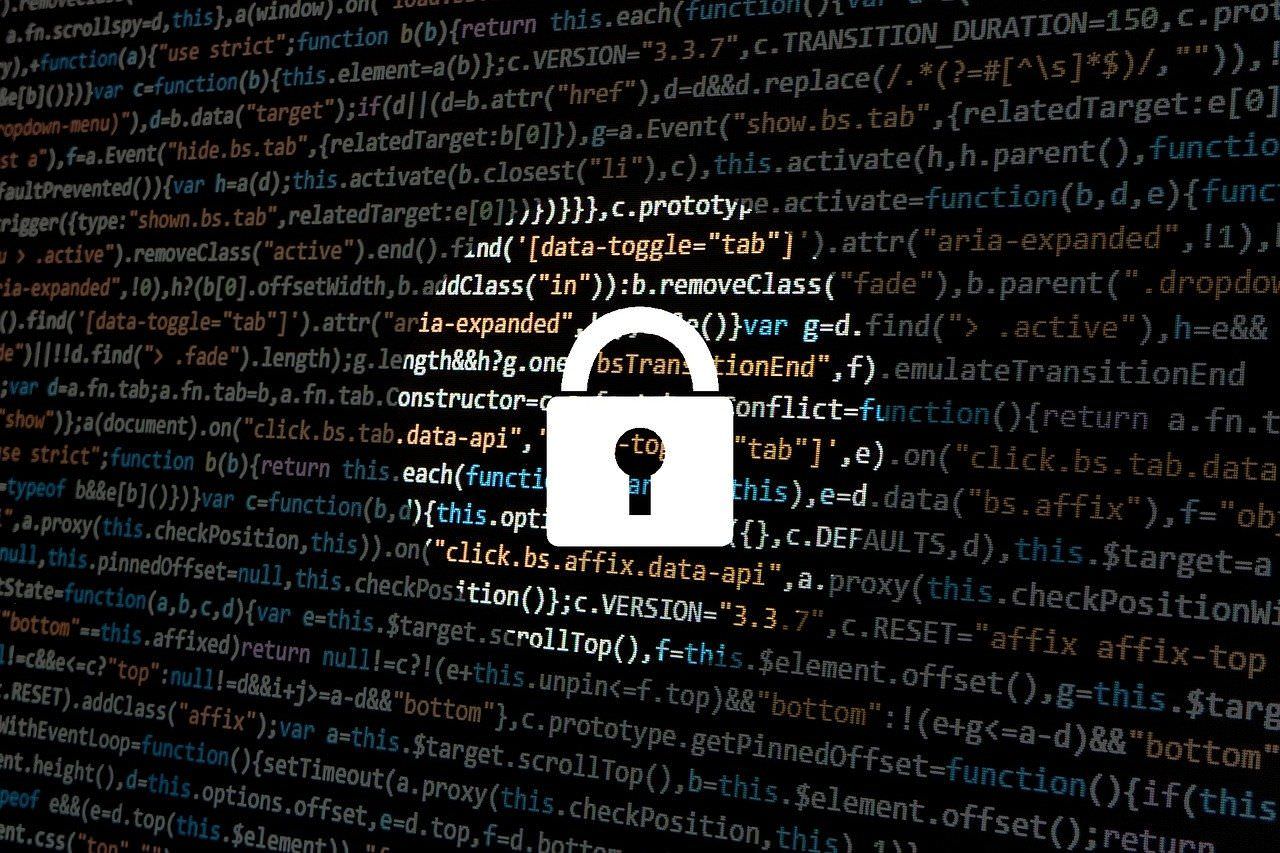
Tips for staying safe online
In our increasingly connected world, it’s more important than ever to stay safe online. In addition to using a VPN, here are a few simple tips to help you protect your information and avoid scams:
1. Keep your personal information private. Be careful about what you share online, and never give out your social security number, credit card number, or other sensitive information.
2. Create strong passwords. Use a mix of letters, numbers, and symbols in your passwords, and don’t use the same password for everything.
3. Watch out for phishing scams. Be suspicious of any email or text message that asks for personal information or directs you to a website that looks suspicious. Make sure to never click on suspicious links or attachments.
4. Keep your software up to date. Install the latest security updates for your operating system and web browser to help protect against the latest threats.
5. Don’t click on links from unknown sources. Emails and websites can spread viruses and malware, so it’s best to only click on links from sources that you trust.
By following these tips, you can help ensure that your data and personal information stay safe online.
Let’s take a look now at some commonly asked questions about VPNs and government tracking.
What kind of information does a VPN protect?
A VPN hides your IP and location. This is because when you connect to a VPN, your traffic is routed through the VPN server. So instead of your IP address being exposed, the IP address of the VPN server is shown.
And as the VPN server is likely located in a different country to where you are, this hides your true location.
A VPN can also be used to protect against surveillance and tracking. By connecting to a VPN, you can encrypt your traffic, which makes it much more difficult for someone to track or spy on what you are doing online.
Can I be tracked if I use a VPN?
It is possible for a VPN provider to track your IP address and location. However, if you are careful about which VPN service you use, you can reduce the risk of your identity being revealed.
VPN providers typically collect some basic information about their users, such as email addresses and payment details. However, they do not generally store logs of user activity or traffic data. This means that your activities cannot be easily tracked back to you.
Nevertheless, it is always important to be aware that any data that is transmitted through a VPN can potentially be accessed by third-party agencies or hackers.
So if you are concerned about your privacy, it is advisable to use a reputable VPN service with strong security features.

Special VPN Deal
Get VPN protection from NordVPN, one of the most reliable VPN companies in the world, for just $3.99/month!
How can you tell if a user is connecting via a VPN?
There are a few ways to tell if someone is using VPN. One way is to look at the IP address that your traffic is coming from. If it’s the same IP address as the VPN server, they know you are connected to a VPN. Data is encoded between the device IP and the VPN server, so even if your traffic is intercepted, it will be unreadable.
Another way to tell if someone is using VPN is to check their connection logs. The best VPNs only connect to a few IPs every single day, suggesting that the user is only connecting to their VPN server. If you see someone connecting to many different IPs, likely, they are not using a VPN.
However, as I mentioned above, in real life, it is not relevant if your ISP or someone else knows you are using a VPN since it’s going to be extremely hard for them to decrypt or monitor what you are doing online.
As long as you trust your VPN provider, it should be impossible for anyone to detect that you are using a VPN or track what you do online. Just make sure to choose a reputable and secure VPN provider.

Can Police track a VPN user?
VPNs, or Virtual Private Networks, are a popular way to enhance online privacy. By routing your traffic through an encrypted tunnel, VPNs make it difficult for anyone to track your online activity.
However, VPNs only provide a measure of privacy-they will not completely hide your identity from online services.
And while VPNs can mask your real IP address, your phone’s GPS will still reveal your real location.
As a result, VPNs are best used with other privacy tools, such as Tor.
Moreover, it is important to remember that VPNs should not be used to engage in criminal activities.
While a VPN may make it more difficult for law enforcement to track your activity, it will not make you invisible.
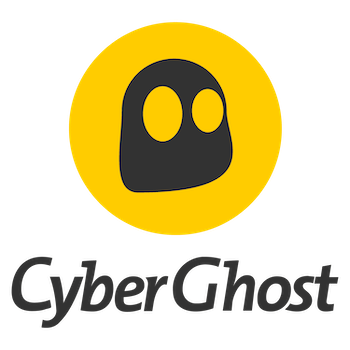
The best VPN with static IP
Get a VPN that lets you protect up to 7 devices, offers amazing security features and has an unbeatable offer!
83% OFF to the 2-years plan + 2 extra months for free
Only $2.29/Month!
Why do governments want to monitor their citizens’ online activities?
There are several reasons why governments might want to monitor their citizens’ online activities.
One of the most common justifications is the prevention of crime. By tracking what people are looking at online, law enforcement officials can identify potential threats and take steps to prevent them.
Additionally, government officials may want to monitor and curb speech that they deem to be harmful or offensive. However, in some cases, governments may misuse their power and use online surveillance for their benefit.
And even when government officials act within the law, they may unintentionally break privacy laws. As a result, it’s crucial to proactively protect your online privacy, and a VPN is an important piece of the privacy puzzle.
Is using a VPN Legal?
VPNs are legal in most countries, but you should always check your specific situation based on your country of residence.
VPNs can be extremely helpful when traveling, as they allow you to access services and accounts from your home country that would otherwise be blocked.
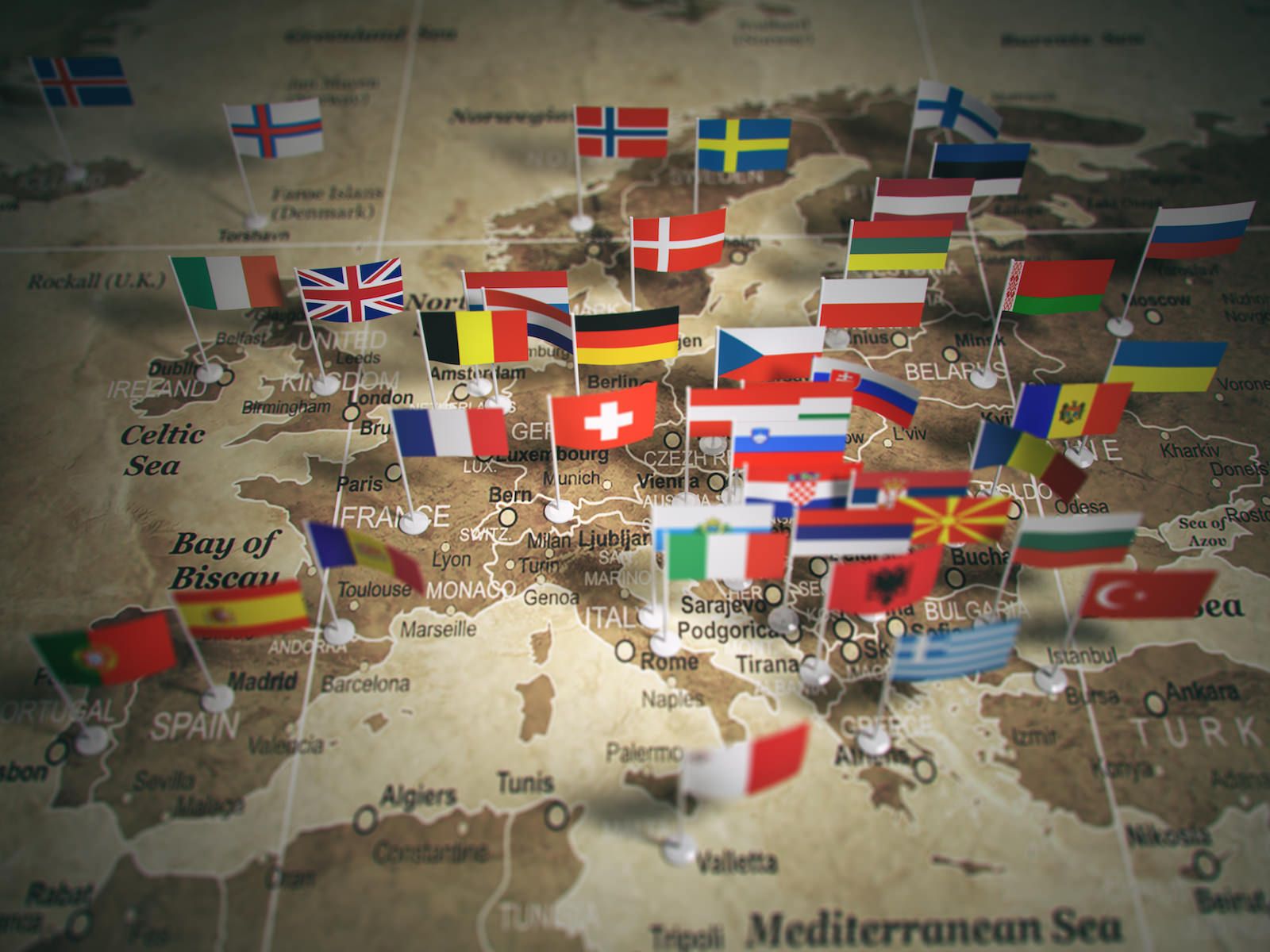
Is it possible for Google to track my activity when I use a VPN?
There’s no easy answer to whether Google can track you when you use a VPN.
On the one hand, a VPN will only partially hide you from Google. However, nowadays, VPNs can help block trackers, which means that your activity will be more difficult for Google to follow.
Additionally, even though a VPN will not completely hide you from Google, it will conceal your activity from your ISP or other bad actors.
If you’re looking for maximum privacy, we recommend using a VPN with Brave Browser, or NextDNS. These tools will help you avoid Google’s tracking. Thank you for your question.
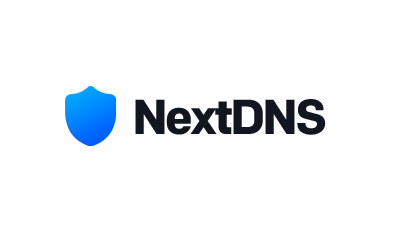
NextDNS
NextDNS protects you from all kinds of security threats, blocks ads and trackers on websites and in apps and provides a safe and supervised Internet for kids — on all devices and on all networks.
Is incognito mode hiding activity from my ISP?
Contrary to popular belief, the incognito mode does not hide your activity from your ISP.
Incognito or private browsing simply means that whatever websites you visit, will leave no trace on your own device. That means any websites, images, video files, etc. that you access in incognito mode are erased from your device when you close the browser.
So while your ISP may still be able to see what websites you’re visiting, they won’t be able to see what you’re doing on those websites.
The best way to hide information from your ISP is to use a VPN. VPNs encrypt your traffic so that even your ISP can’t see what you’re doing online. And because VPNs route your traffic through a remote server, your ISP also won’t be able to tell where you’re going online.
So if you want to keep your activity truly private, make sure to use a VPN.

Special offer for our readers – 3 Months Free!
Get the best rated VPN service in the world with a special offer just for the readers of PrivacyTutor!
Conclusion
In conclusion, a VPN is an important tool to have in your online security arsenal. It can help keep you safe from government tracking and surveillance, as well as hackers and other cyber criminals.
When choosing a VPN, be sure to consider factors such as price, features, and privacy policies.
And always remember to use strong passwords and to keep your software up-to-date. With these precautions in place, you can enjoy the many benefits of using a VPN without fear for your safety or privacy.

